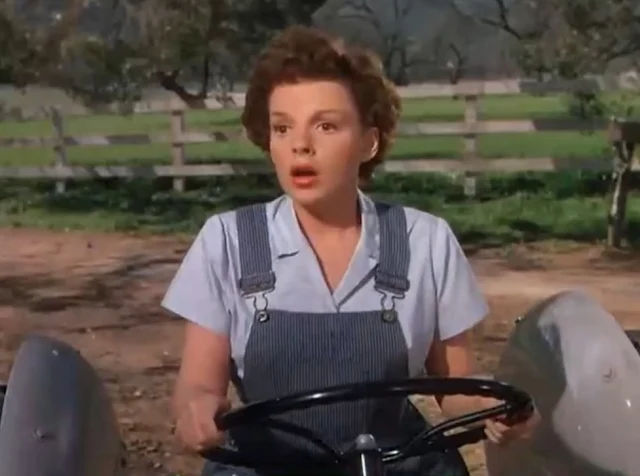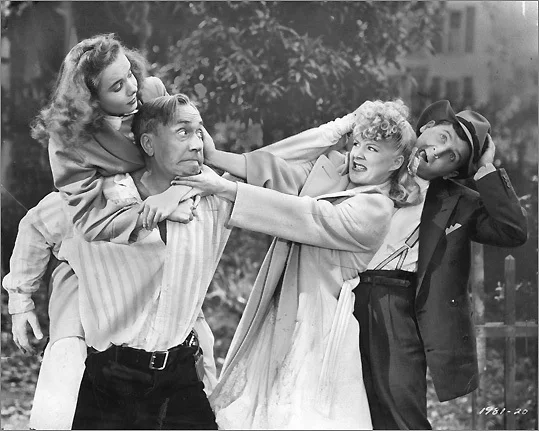 |
| Hal Le Roy, Lucille Ball, Richard Carlson, Eddie Bracken, Desi Arnaz in Too Many Girls |
When Desi met Lucy -- that's the most memorable thing about this silly college musical that was directed on stage by George Abbott, who brought over several members of the original cast when he was hired to make the film version at RKO. It was designed to be a vehicle for Lucille Ball, an RKO contract player who hadn't been in the stage production and whose singing voice wasn't up to the demands of the Richard Rodgers and Lorenz Hart songs of the original show, so she was dubbed by Trudy Erwin. Among the cast hired out of the original were Eddie Bracken, Hal Le Roy, and Desi Arnaz, as well as a young chorus boy, Van Johnson, who has a couple of lines but goes uncredited. Although Arnaz is paired in most of the film with Ann Miller, he and Ball hit it off when they weren't on screen and married shortly after the movie wrapped. The story is nonsense about Connie Casey (Ball), a playgirl whose father wants her to settle down and go to college at his alma mater, Pottawatomie, in New Mexico. But he also hires some bodyguards, four young college football players, to keep her out of trouble. And so it goes, as the four bodyguards lead the Pottawatomie football team to a string of victories, and one of them, Clint Kelly (Richard Carlson), falls hard for Connie. It's very loose-jointed stuff, with some lively musical numbers spotlighting Arnaz, Miller, Frances Langford, and a large company of dancers directed by LeRoy Prinz, but a lot of dull filler in between. It's amusing to see Eddie Bracken before he got stereotyped as a doofus in Preston Sturges movies, and a crewcut Richard Carlson before he wound up as the very square star of such 1950s sci-fi movies as It Came From Outer Space (Jack Arnold, 1953) and Creature From the Black Lagoon (Arnold, 1954).




















